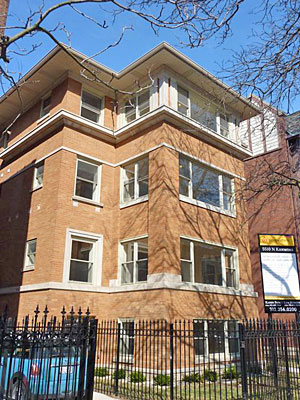
At today’s Chicago City Council meeting, Mayor Daley will introduce an ordinance designed to protect renters whose buildings are going condo, as well as the people who end up buying those condominiums. But not only do these protections come long after the condo conversion boom is over, they also include provisions that could put a burden on developers and perhaps delay any new wave of condo conversions.
The proposals, which Daley announced Friday, come from his Condominium Conversion Task Force, formed in 2007 amid a rush of condo conversions often blamed for displacing renters from affordable housing. The task force, chaired by 31st Ward alderman Ray Suarez, released its report Friday, in the midst of what Daley acknowledged as a diminished market for new condo conversions. (Suarez did not respond to requests for comment.)
Protecting renters from hasty or unscrupulous developers is important, particularly in neighborhoods where affordable rentals are in increasingly short supply. But condo conversion also typically entails a new investment in rehabbing sometimes-rundown buildings. Daley said that the task force worked to balance the needs of both renters and developers.
Among the new rules is a requirement that condo converters give renters nine months notice that a building is going condo, up from the current four-months notice. “The developer will have to sit and wait for nine months for tenants to move out, but he’s going to be paying for his mortgage [on the building] that whole time,” said Paul Dukach, whose BPL Construction has converted ten Chicago buildings (with about 200 units) since 1997. Dukach pointed out that in the early stages of a project, a condo converter is also paying for permits, architectural work, and expediters, among other things. Extending the time before converted apartments can be sold may mean developers will have to take more costly financing terms from their lenders, which ultimately gets tacked onto the sale price.
Another veteran converter, Ron Kozil, found the nine-month rule excessive. “A tenant can find a new home in four months,” he said. “I can see they’re trying to help tenants, but they’re really not being helped. Nine months isn’t needed.” Kozil, who has converted about 100 Chicago apartments into condominiums, said that he has never had a tenant ask for more than the allotted four months.
Daley’s proposed ordinance would also require developers to pay each tenant of an apartment that is going condo at least $1,500. At present, there is no such requirement, although Dukach said that some tenants have negotiated deals. Gail Lissner, vice president of Appraisal Research Counselors, a consultant to downtown condo developers, declined to speculate whether the $1,500 rule would hurt developers’ business. “It’s certainly an added cost,” she acknowledged, but added, “We’re years past the peak of conversions.”
There is no solid figure on conversions, but in each of the boom years from 2004 to 2007, from 1,200 to 1,700 Cook County property parcels were made into condominiums—whether converted or new construction—according to Molly Sullivan, spokesperson for the city’s department of community development. (The assumption is that the majority of those were in Chicago.) In 2009, there were 306.
With a glut of unsold new and converted condos, and with financing of new projects hard to come by, condo conversion in the city is at a near standstill. And while Daley said Friday that he wanted to have protections in place before any new wave of conversions, Kozil suggested there might be another factor in the timing of the announcement. “Nobody is doing any converting now,” he said, “so nobody is going to fight you over it.”


